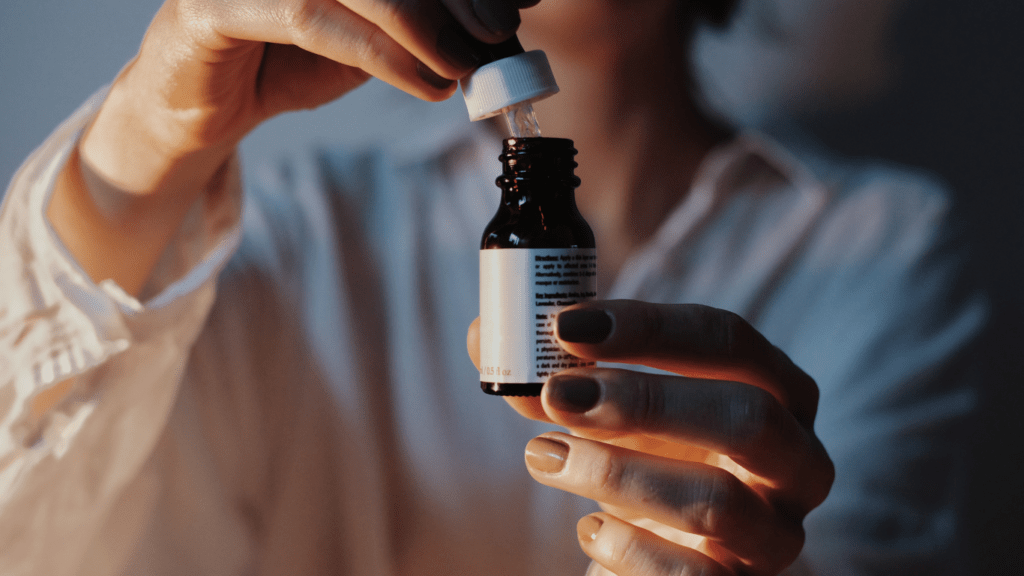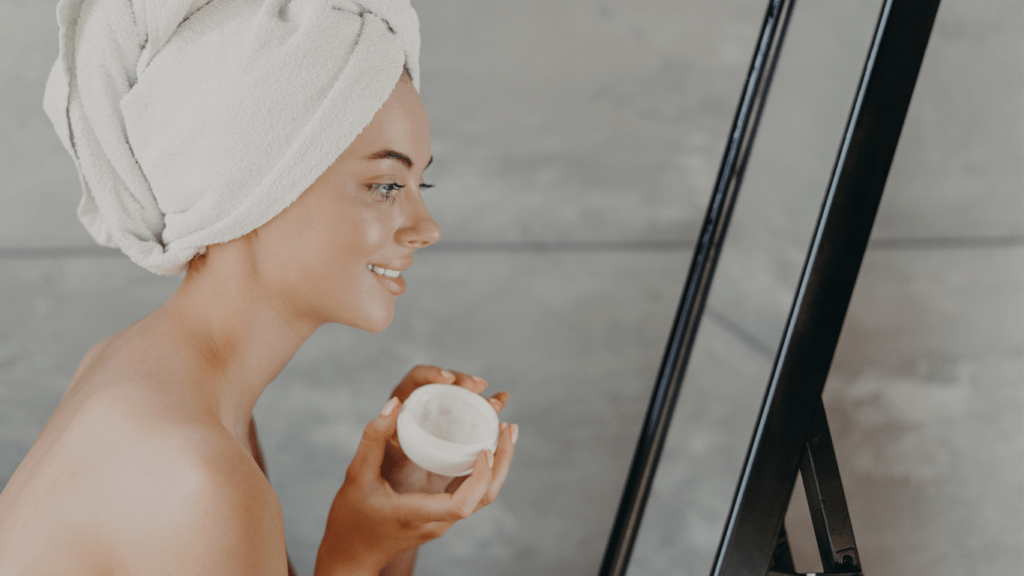Understanding Common Skin Concerns
Knowing common skin issues is key to addressing them effectively. Breakouts, dryness, and signs of aging are frequent complaints among individuals. By recognizing these problems, I can recommend suitable treatments and prevention strategies.
Breakouts
Acne affects many, ranging from mild pimples to severe cysts. Hormonal changes, stress, and improper skincare contribute to this issue. Products containing salicylic acid or benzoyl peroxide help reduce acne. Consistent use of these products clears breakouts and prevents new ones.
Dryness
Dry skin results from a lack of moisture. Environmental factors and certain skincare products cause this condition. Moisturizers with hyaluronic acid and glycerin restore hydration. Applying such moisturizers twice daily keeps skin supple and hydrated.
Signs of Aging
Aging manifests through wrinkles, fine lines, and loss of elasticity. Sun exposure and decreased collagen production exacerbate these signs. Using products with retinol and antioxidants combats aging effects. Regular application of these products improves skin texture and firmness.
Cleansing Tips for Clear Skin

Cleansing forms the foundation of any skincare routine. It’s essential for removing dirt, oil, and impurities that can lead to breakouts and other skin issues.
Choosing the Right Cleanser
Selecting the appropriate cleanser for your skin type is crucial. For oily skin, opt for a foaming or gel cleanser, which helps remove excess oil without over-drying. Dry skin benefits from creamy or hydrating cleansers that retain moisture. Combination skin requires a balanced formula, tackling both oily and dry areas. Sensitive skin needs gentle, fragrance-free cleansers to avoid irritation. Ingredients like salicylic acid for acne-prone skin or ceramides for dry skin enhance effectiveness. Check labels to ensure the product suits your individual needs.
Proper Cleansing Techniques
Adopting correct cleansing techniques improves skin health. Use lukewarm water to prevent irritation or excessive dryness. Apply a small amount of cleanser to damp skin, gently massaging in circular motions for 30-60 seconds. This ensures thorough removal of impurities. Rinse thoroughly with lukewarm water and pat dry with a clean towel. Avoid rubbing, which can cause micro-tears. Cleansing twice daily, once in the morning and once before bed, maintains cleanliness without stripping the skin’s natural oils. Double cleanse if you wear makeup or sunscreen, starting with an oil-based cleanser followed by your regular one.
Hydrating Tips for Dry Skin
Keeping dry skin hydrated is essential to maintaining a healthy complexion. Knowing which products to use and which ingredients to look for can make a significant difference.
Importance of Moisturizers
Moisturizers play a critical role in hydrating dry skin. They help lock in moisture, preventing water loss from the skin’s surface. A good moisturizer can enhance the skin’s barrier function, reducing the risk of irritation. If choosing a moisturizer, opt for those labeled as “deeply hydrating,” as they are formulated to tackle severe dryness.
Hydrating Ingredients to Look For
Certain ingredients are particularly effective in combating dryness. Look for:
- Hyaluronic Acid: This substance can hold up to 1,000 times its weight in water, making it highly effective for deep hydration. It draws moisture from the environment into the skin, keeping it plump.
- Glycerin: Found in many skincare products, glycerin absorbs water from the air, boosting skin hydration levels. It’s particularly useful in humid conditions.
- Ceramides: These lipids strengthen the skin’s barrier, helping retain moisture. Ideal for dry or sensitive skin, ceramides help prevent moisture loss and protect against irritants.
- Urea: Known for its hydration and exfoliation properties, urea improves the skin’s ability to retain moisture. It also alleviates rough texture often associated with dry skin.
These ingredients work synergistically to provide deep and lasting hydration, ensuring your skin stays soft and smooth.
Managing Oily Skin
Managing oily skin involves using the right products and making specific daily routine adjustments.
Best Products for Oily Skin
Effective products are key in managing oily skin. Look for cleansers with salicylic acid which help unclog pores. Gel-based moisturizers hydrate without adding excess oil. Incorporate oil-free and non-comedogenic sunscreens to protect skin without clogging pores. Use clay masks weekly which absorb excess oil and impurities, improving overall skin texture.
Daily Routine Adjustments
Adjustments to the daily routine can significantly impact oily skin control. Cleanse twice daily using a gentle, foaming cleanser to remove excess oil and impurities. Avoid scrubbing harshly which can irritate the skin and increase oil production. Apply a lightweight, oil-free moisturizer to maintain hydration. Use blotting papers throughout the day to absorb excess oil without disrupting makeup. Exfoliate once or twice a week with a BHA (beta hydroxy acid) product to remove dead skin cells and prevent pore congestion.
Treating Acne and Blemishes
Managing acne and blemishes effectively involves targeted treatments and consistent preventative measures. It’s essential to choose the right products and procedures for your skin type.
Effective Acne Treatments
Salicylic Acid: This beta hydroxy acid (BHA) penetrates deep into pores, helping to clear out excess oil and dead skin cells. For example, a 2% salicylic acid cleanser used twice daily can reduce breakouts.
Benzoyl Peroxide: Known for its antibacterial properties, benzoyl peroxide helps eliminate acne-causing bacteria. Spot treatments with 2.5% to 5% benzoyl peroxide can reduce inflammatory acne.
Retinoids: These vitamin A derivatives increase cell turnover, preventing pore congestion. Prescription strength retinoids like tretinoin are effective for severe acne.
Azelaic Acid: This naturally occurring acid helps reduce inflammation and hyperpigmentation. A 10% azelaic acid cream can improve both acne and resulting dark spots.
Tea Tree Oil: As a natural alternative, tea tree oil possesses antimicrobial properties. A 5% tea tree oil gel applied twice daily can reduce mild to moderate acne.
Preventative Measures
Consistent Cleansing: Wash your face twice daily with a gentle cleanser to remove dirt, oil, and impurities. Over-cleansing can strip the skin and trigger more oil production.
Non-Comedogenic Products: Use products labeled as non-comedogenic to prevent clogged pores. For example, oil-free moisturizers won’t contribute to acne formation.
Healthy Diet: Incorporate foods high in antioxidants and omega-3 fatty acids like salmon, walnuts, and leafy greens. Avoid high-glycemic foods that can spike insulin and trigger breakouts.
Avoid Touching Your Face: Hands carry bacteria and oils that can transfer to your skin. Minimizing face-touching helps reduce the risk of introducing new bacteria to your skin.
Regular Exfoliation: Use an exfoliant with alpha hydroxy acids (AHAs) or BHAs once or twice a week to remove dead skin cells and prevent clogged pores. Regular exfoliation leads to clearer skin.
Addressing Sensitive Skin
Sensitive skin requires special care to prevent irritation and maintain health. Here’s how to manage it effectively.
Gentle Skincare Products
Choose gentle skincare products to avoid aggravating sensitive skin. Look for fragrance-free, hypoallergenic, and alcohol-free items. Use mild cleansers with ingredients like glycerin and ceramides. Opt for moisturizers containing soothing agents like aloe vera, chamomile, and colloidal oatmeal. Mineral sunscreens with zinc oxide or titanium dioxide help prevent sun damage without causing irritation.
Avoiding Irritants
Minimize exposure to known skin irritants. Avoid products with sulfates, parabens, and artificial fragrances. Wear sunscreen to protect from UV rays, a common irritant. Patch test new products on your forearm before using them on your face to check for adverse reactions. Avoid extreme weather conditions, hot showers, and harsh exfoliants that can strip the skin’s natural barrier and cause further irritation.
Enhancing Skin Health with Diet and Lifestyle
Diet and lifestyle choices play a significant role in maintaining healthy skin. I’ll provide some key tips to help you achieve a glowing complexion.
Nutritional Tips for Healthy Skin
Consuming a balanced diet rich in vitamins and minerals promotes skin health. Focus on these essential nutrients:
- Vitamin C: Enhances collagen production and repairs skin damage. Sources include oranges, strawberries, kiwi, and bell peppers.
- Vitamin E: Acts as an antioxidant, protecting against sun damage. Find it in nuts, seeds, and spinach.
- Omega-3 Fatty Acids: Reduce inflammation and keep the skin hydrated. Incorporate fatty fish, chia seeds, and walnuts into your meals.
- Zinc: Helps treat acne and supports skin regeneration. Eat oysters, lean meats, and legumes for a zinc boost.
- Beta-Carotene: Converts to vitamin A, promoting skin repair. Carrots, sweet potatoes, and dark leafy greens are excellent sources.
Impact of Stress and Sleep on Skin
Adequate sleep and stress management significantly affect skin health. Here’s how to optimize both:
- Sleep: Poor sleep causes dull skin and dark circles. Aim for 7-9 hours of quality sleep per night to support skin repair and renewal.
- Stress Management: Chronic stress triggers breakouts and skin irritation. Practice mindfulness, meditation, and regular exercise to reduce stress levels.
- Hydration: Keep your skin hydrated from within by drinking at least 8 glasses of water daily. Proper hydration helps maintain skin elasticity and reduces the appearance of fine lines.
By integrating these dietary and lifestyle changes into your routine, you’ll notice an improvement in your skin’s health and appearance.


 Bonnie Brown is an expert in holistic wellness with over a decade of experience in natural health and skincare. She has dedicated her career to helping individuals achieve radiant health through plant-based solutions and mindful self-care practices. Bonnie is passionate about blending ancient traditions with modern wellness techniques, making her insights a valuable resource for anyone on a journey to healthier skin and overall well-being.
Bonnie Brown is an expert in holistic wellness with over a decade of experience in natural health and skincare. She has dedicated her career to helping individuals achieve radiant health through plant-based solutions and mindful self-care practices. Bonnie is passionate about blending ancient traditions with modern wellness techniques, making her insights a valuable resource for anyone on a journey to healthier skin and overall well-being.
